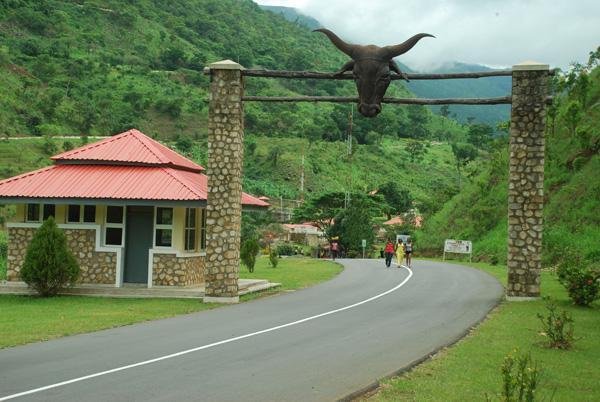MAJORCA has now joined the growing list of cities – Barcelona, Venice, Lisbon, Ibiza, Tenerife, Amsterdam, and Paris – taking a dramatic stand against over-tourism. This island in Spain isn’t just whispering for change – it’s declaring war. With the shocking withdrawal of seventeen thousand beach loungers, Majorca is sending a powerful message: the locals have had enough.
The battle lines are drawn, and this once-idyllic destination is now the centre of a global tourism reckoning. But what drove Majorca to act so boldly? Why now? And what does this mean for the future of travel?
As tensions rise and headlines explode, the alarming truth begins to surface. From packed beaches to angry protests, something is shifting in the heart of Europe’s most beloved destinations. Keep reading to uncover the emotional and economic storm building beneath the surface – and why this island’s bold move might just ignite a global tourism revolution.
In a bold and emotionally charged move, Majorca has announced the removal of nearly 1,700 sun loungers from Palma’s most visited beaches. This isn’t just about furniture – it’s a visible and symbolic stand against the tide of overtourism that’s washing over the island and eroding both its coastline and its culture.
For years, residents of Palma, Majorca’s vibrant capital, have watched their beaches disappear beneath endless rows of tourist sunbeds. Local access has become nearly impossible, as commercial setups dominate every inch of sand. The island’s iconic coastal spaces – once a communal treasure – have turned into premium zones, priced and packaged for foreign visitors.
Now, that’s changing.
Tourism at a Tipping Point
Palma’s city council has confirmed a dramatic 20% cut in sunbed availability across four major beaches by 2026. The effort will slash thousands of loungers and umbrellas to give space back to locals and reduce the environmental stress caused by mass tourism.
On Playa de Palma, loungers will drop from 6,000 to 4,436. Umbrellas are being trimmed too, down from 2,503 to 2,218. Other beaches, including Cala Major, Ciutat Jardi, and Cala Estancia, will also see sharp reductions. Even Can Pere Antoni, under separate jurisdiction, will see its sunbed count more than halved – from 200 to just 94.
Meanwhile, an ambitious digital solution is on the horizon. By 2027, an app will allow tourists and locals alike to reserve beach loungers in advance. But for now, the message is clear: the island is reclaiming its shorelines.
The Locals Are Rising
This move comes at a boiling point for residents. Across Spain and other parts of southern Europe, protests are erupting. Activist networks are mobilising with water-pistol protests – symbolic but impactful demonstrations – set to take place in hotspots like Mallorca, Ibiza, Menorca, Barcelona, Malaga, and even Venice and Lisbon.
Residents are angry. The rising cost of living, combined with short-term rental conversions, has pushed many out of their neighborhoods. Jobs are increasingly seasonal, real estate prices are skyrocketing, and public services are buckling under the pressure of year-round tourist demand.
Protesters aren’t just asking for policy tweaks – they’re urging travellers to stay away entirely. Many are warning that Majorca is no longer the paradise it’s marketed as. For them, the island has become unlivable. And their frustration is spilling out into the streets, letters, and public discourse.
A New Kind of Travel Reckoning
What’s happening in Majorca is part of a wider reckoning in the global travel industry. For decades, sun-soaked islands and coastal gems were marketed as infinite resources. The reality? These places are finite, fragile, and now, fiercely defended by the people who call them home.
The removal of loungers is not just a logistical decision – it’s a cultural statement. Majorca is not rejecting tourism entirely, but it is challenging how much is too much. The new model is not about mass access. It’s about balance, respect, and sustainability.
Financial Power vs Local Rights
The local government’s €300 million plan to revitalise Playa de Palma underscores the high stakes. Alongside the beach reforms, new hotel construction is being frozen. Existing properties must be upgraded or converted to residential spaces. It’s a bold effort to refocus the region on livability, not just profitability.
But tourism has long been the island’s economic engine. Cutting back access to beaches and banning hotel development won’t come without a cost. Tour operators, beach concessionaires, and some local businesses reliant on summer crowds are sounding the alarm. They argue that limiting capacity will shrink revenues and hurt employment.
However, residents believe the short-term economic hit is worth the long-term sustainability. The current model, they say, is broken – and if nothing changes, the island may lose what makes it special altogether.
The Summer Ahead: Tension, Transition, and Transformation
This summer could be one of the most volatile Majorca has ever seen. Visitor numbers are expected to hit new highs, even as local resentment simmers dangerously close to boiling. The travel industry must tread carefully. Destinations like Majorca are no longer guaranteed to greet visitors with open arms.
Travellers, too, are being asked to reflect. Is the convenience of a rented lounger worth the displacement of a family? Is the all-inclusive hotel experience more important than preserving a community’s identity? More tourists are beginning to ask these questions – and tourism boards across Europe are taking notes.
What This Means for the Industry
Majorca’s actions are a wake-up call. The travel industry can no longer ignore the social cost of unchecked growth. Destinations are pushing back, and policy is catching up with public sentiment.
Expect similar measures across Spain and southern Europe. Smart tourism – not volume tourism – is the future. That means caps, fees, eco-taxes, and a bigger focus on local benefit. For airlines, hoteliers, and tour operators, adapting to this new travel ethos is no longer optional. It’s essential.



























